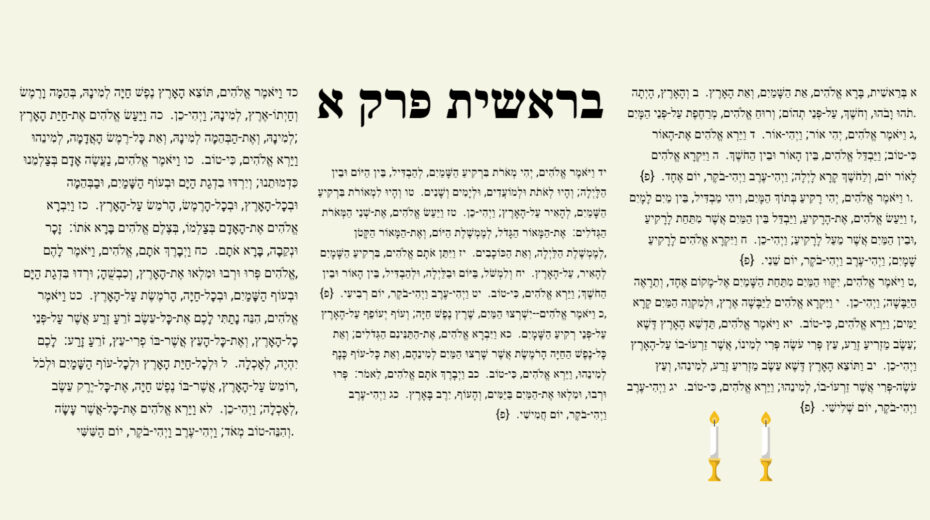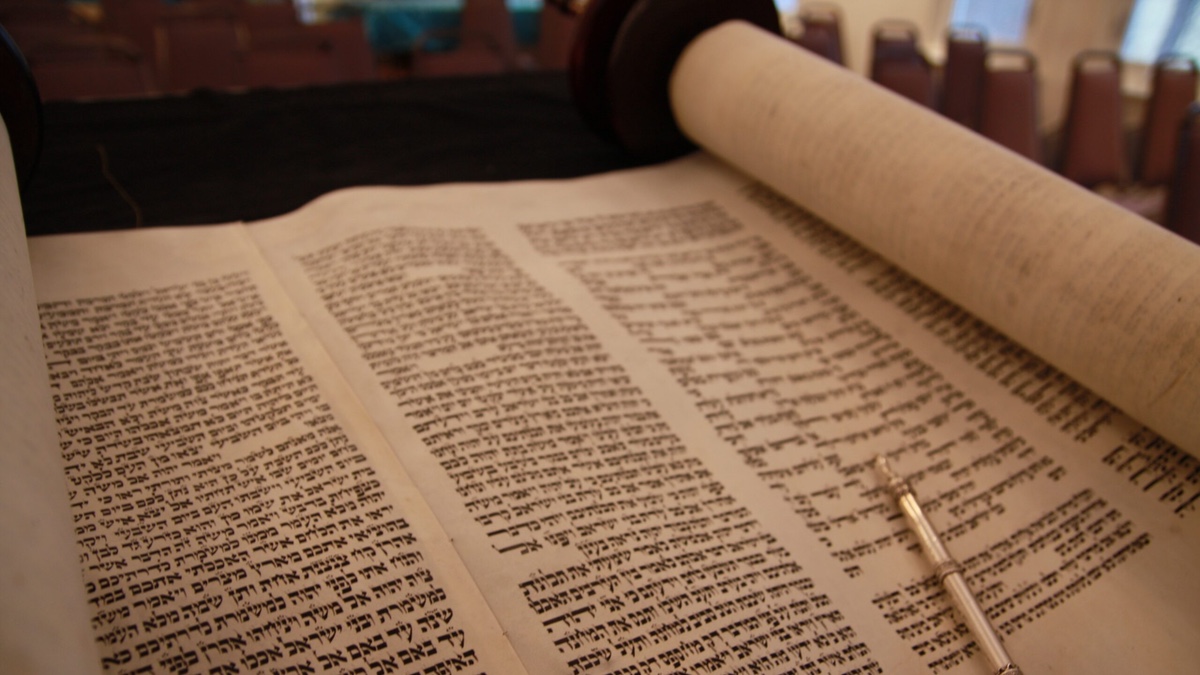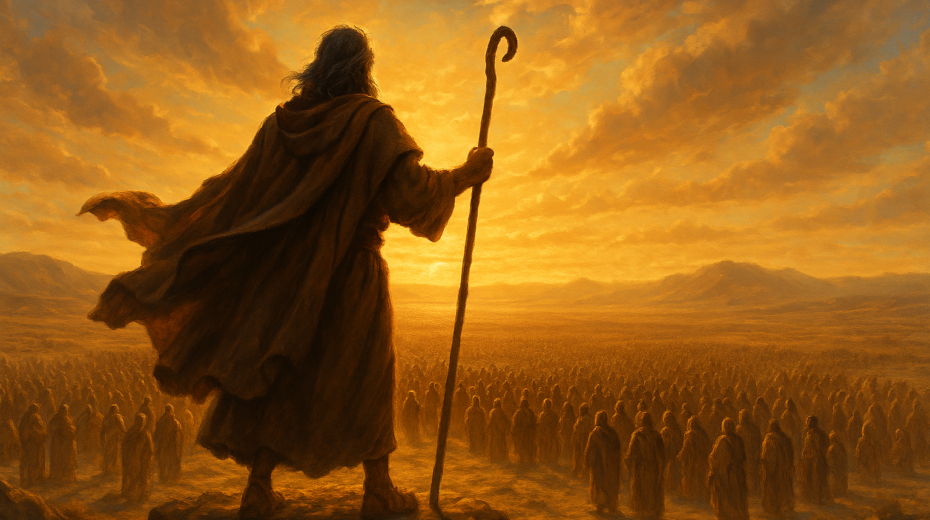Torah Portion – Bereshit – In the Beginning; Genesis 1:1 – 6:8; Isaiah 42:5 – 43:10
Why did Adam and Eve’s eyes suddenly open, and why did they feel shame about their nakedness? These ancient questions still occupy us today. In this reflection, I invite you to reread the text with an open heart. Perhaps we’ll discover that the “knowledge” in Paradise wasn’t just about intellectual understanding but the awakening of a profoundly human experience.
It’s no secret that the first book of the Bible, Bereshit, is my absolute favorite book—not just in the Bible, but in general. I love the characters, the patriarchs and matriarchs, the tribal elders. As soon as I dive into the stories, it feels as though the figures come to life before me, allowing me to feel their emotions and better understand what they experienced.
This book reveals something new to me with every reading—about myself, about the world of faith and spirit, and about my own growth within it. Sometimes the insights are not easy and can even be challenging, requiring time to process. At times, I even feel uneasy about sharing my thoughts with others. Nevertheless, I’m willing to take that risk, fully aware that not everyone will agree or accept what I write. And that’s okay.
It’s important to me that you remember: my words are a subjective interpretation, rooted in the biblical texts and inspired by the Jewish and spiritual world. So, I’ll say it again: this is just one interpretation, and you don’t have to accept it. But even if it sparks resistance in you, it’s worth asking why and considering other perspectives—sometimes they can be very enriching. This time, I want to talk about the story of the Tree of Knowledge, fully aware that what I say may not be easy to digest.
And yet, the question I raise here is: What is the Tree of Knowledge? What is this significant tree in the Garden of Eden that God forbade humans to eat from?
“You shall not eat of the tree of the knowledge of good and evil, for in the day that you eat of it, you shall surely die.”
Was it really an apple tree, as we often assume? Or perhaps a fig tree? To understand this, we need to look at the word Da’at (דעת) for “knowledge” and see how it’s used elsewhere in the Bible. The root of the word Da’at is י.ד.ע (Y.D.A.), meaning knowledge, awareness, or recognition. What does this word tell us in other biblical contexts?
Right after the expulsion from Paradise, it says:
“And the man knew (yada) his wife Eve, and she conceived and bore Cain.”
This happens immediately after the expulsion, with the same characters, Adam and Eve, leading me to understand that there is indeed a connection between “the man knew his wife” and the Tree of Knowledge.
In the story of Lot, it says:
“So they made their father drink wine that night. And the firstborn went in and lay with her father, and he did not know (lo yada) when she lay down or when she arose.” (Genesis 19:33)
Another example is in the story of Rebecca:
“She was a very beautiful young woman, a virgin, and no man had known her (lo yeda’ah). She went down to the spring, filled her jar, and came up.” (Genesis 24:16)
There are more such examples.
When we look at these, we see that the verb “to know” (yada) is associated with intimate relationships, with sexuality. That’s a remarkable discovery, isn’t it? So, could we ask whether the Tree of Knowledge was perhaps the awakening of sexuality? Notice what happens immediately after they eat from the tree:
“Then the eyes of both were opened, and they knew that they were naked, and they sewed fig leaves together.”
Right after “eating” from the tree, their awareness opens, and they recognize their nakedness. The first thing they do is cover their private parts.
This suggests that with the awakening of consciousness, three things come together: guilt, shame, and covering. They cover their bodies and then hide from God, ashamed of their act—sex. This story suggests to me that eating from the Tree of Knowledge brought the ability to discover sexuality, and this discovery enabled them to create life.
For what happens right after the expulsion from Paradise? “And the man knew (yada) his wife Eve, and she conceived and bore Cain.” This leaves me with an open question, an invitation to reflect: Why did God say that they would die on the day they ate from the tree? This question remains open before you, a genuine invitation to pray further and give God’s Word space to resonate within you.
Shabbat Shalom, may it be filled with new creation and a blessed new beginning.
Shabbat Times in Israel (Local Time):
- Jerusalem – Start: 5:29 PM, End: 6:40 PM
- Tel Aviv – Start: 5:44 PM, End: 6:42 PM
- Haifa – Start: 5:35 PM, End: 6:40 PM
- Beersheva – Start: 5:47 PM, End: 6:42 PM
- Eilat – Start: 5:37 PM, End: 6:43 PM














